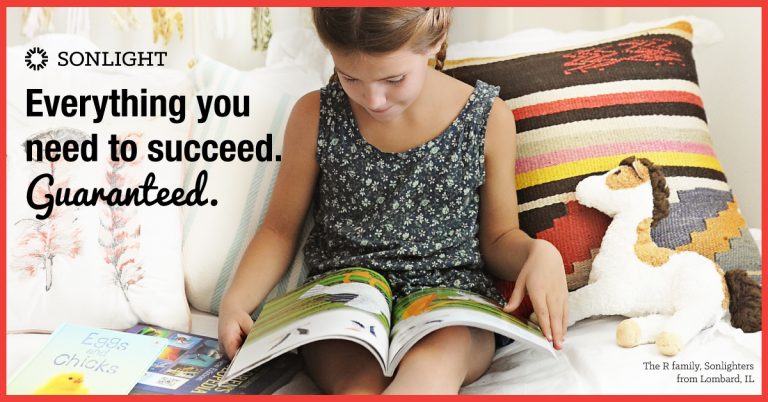One of the beautiful aspects of homeschooling is how you can tailor the education to your child’s needs (and yours as the teacher). If a child struggles with reading, you can do more read-alouds. If a child hates math, you can find math games to play! Likewise, if you the teacher don’t excel at history, math, or grammar, just find the right curriculum that lays it all out for you so you don’t have to wonder if you are covering everything.
But what happens when you’ve done all the research and found what should be the exact right fit for you and your child … and it just isn’t clicking?
- Do you change curricula?
- Modify the curriculum?
- How do you know when to tweak and when to perform a complete overhaul?
Though my own kids are still in early elementary, I’ve been immersed in the homeschool world my whole life. I thought I knew what curricula I liked and didn’t. My husband was also homeschooled, so we joke that we wouldn’t have known how to send our kids to school. Between the two of us, our curriculum choices were laid out before our oldest turned five.
And then our oldest decided to have opinions of his own. Of course he has no idea the wealth of curriculum options that exist, but he absolutely knew what he didn’t like. The baffling part was that the curriculum he disliked were for areas he excelled in: language arts and math.
Finding the Real Cause of Homeschool Curriculum Problems
I’ve spent two years now on this question:
How do I know if this aversion to particular subjects is just a defiance issue (totally possible with my kids), or an indication that we have it wrong in our much-loved curriculum choice?
Obviously, this is a personal decision; you know your child best. But here are some things that I looked for that helped me say goodbye to my original homeschool curriculum choice and begin researching a better fit for my kids:
1. What is the real speed bump?
Is it an issue of learning style, presentation, expectations, or concepts? We were able to narrow down the real issue to the worksheets. He hates worksheets. This revelation fit perfectly with what we already knew about his learning style, learning struggles, and personality.
2. Is this something you can work around?
Can you modify the curriculum rather than go for a whole overhaul? When it came to our math curriculum, I thought yes. My child would answer orally and I’d mark the sheet. We’d play more math games, do more hands-on activities, etc. But at a certain point, I realized I was doing too much extra planning to call this curriculum a good fit.
3. What about multiple kids?
Not all children learn alike or have the same struggles. My second-born loves worksheets! He’s flown through more workbooks before kindergarten than my oldest has yet to finish. He also has an aptitude for math and language arts, like his brother. When he started showing an aversion to the curriculum in question (independent from his brother), I realized this wasn’t only a personality or learning preference issue, and a switch might be in everyone’s best interest.
4. Is the child learning?
This point, of course, is what it all comes down to. Near the end of the year I realized that, despite all my compensations and his natural aptitude for the material, my child was making up tricks to remember his subtraction facts. He would mix up when to add and which numbers to subtract and had no idea why he was wrong. I saw that he wasn’t fundamentally understanding the material, which meant something needed to change.
Sometimes the Parent Is the Real Curriculum Problem
When it came to the language arts curriculum, I realized the real problem was it didn’t click with me. Not that I couldn’t understand the concepts (this was first grade), but the teaching style was just not me. On the face of it, it seemed a good fit, but I had started to dread picking up the teacher’s manual. I was finding excuses to skip it or abbreviate it. So when my children would groan and bury their heads in the sofa when the book came out, the motivation to continue was dim.
For a little while, I pushed this subject onto my husband to cover during his lunch breaks since he was working from home. This had been one of his curriculum favorites, after all. But that only heightened the kids’ resentment of the subject as it replaced wrestling and read-alouds with phonic rules.
Finally I gave myself permission to research a better curriculum fit for all of us. It helped that I saw a friend rave about her language arts curriculum choice on social media, so I had a ready option to investigate. We switched half-way through the year, and the difference has been amazing. No more groans, eye-rolls, or attempts to distract from the material… and the kids’ phonetic awareness has taken off too!
It can be discouraging to invest time, money, and effort into a curriculum only to have it fall flat. Sometimes pushing through a rough patch can yield great results. But sometimes it’s okay to let go of your curriculum choice and find the right fit for both you and your learner. When you see your child grow to love a subject he previously didn’t, or see his natural abilities be supported and take off, the investment seems small in comparison.









